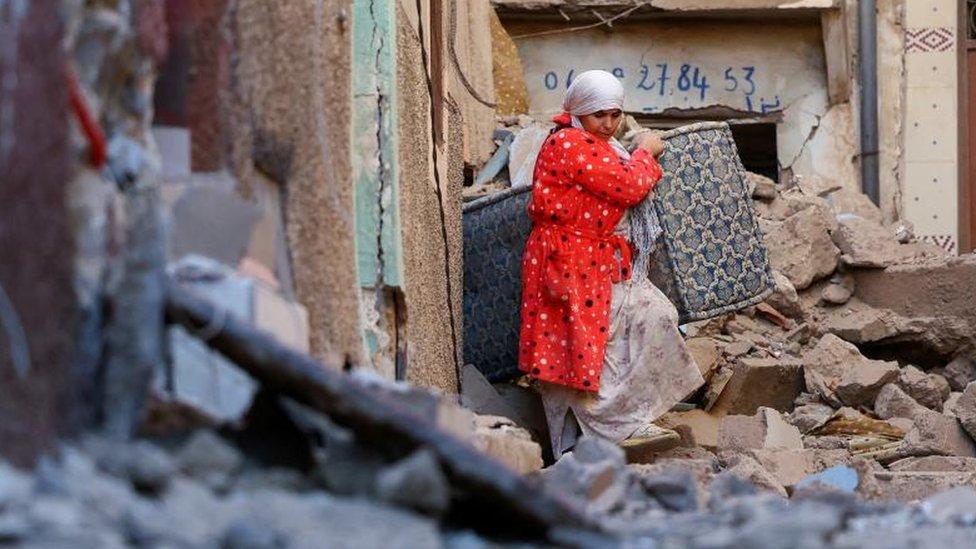Morocco earthquake: Baby starts life in tent as quake victims await aid
- Published
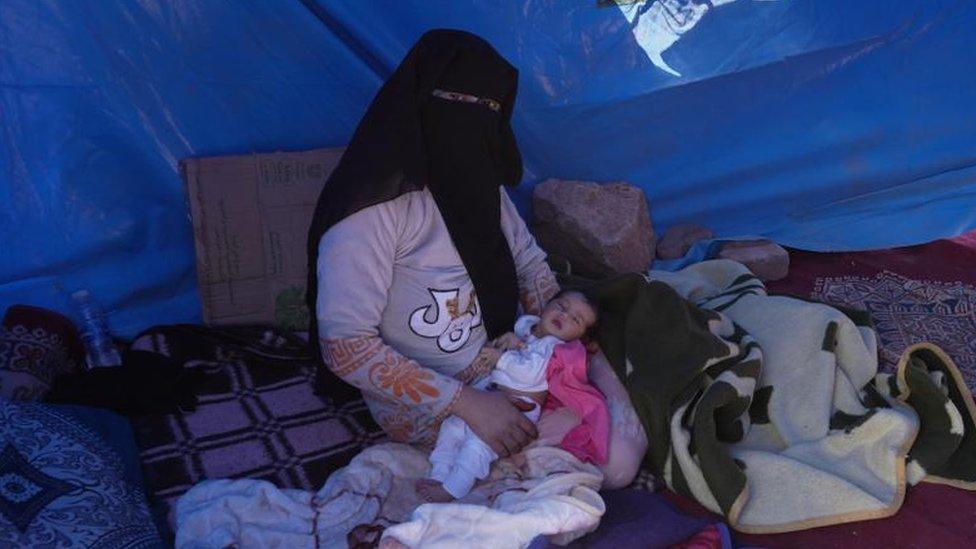
Khadija's baby was born just minutes before a deadly earthquake struck Morocco
Khadija's baby doesn't even have a name yet, but her first home is a tent by the side of the road.
She was born just minutes before Morocco's deadly earthquake struck on Friday night.
Though the mother and daughter were unhurt, the hospital in Marrakesh they were in was evacuated. After a quick check up, they were asked to leave just three hours after the birth.
"They told us we had to go due to the fear of aftershocks," she said.
With their new-born, Khadija and her husband tried to take a taxi early on Saturday to their home in Taddart in the Atlas Mountains, about 65km (40 miles) from Marrakesh.
But on their way there they found that the roads were blocked by landslides, and only made it as far as the village of Asni.
The family have been living in a tent by the side of the main road since.
"I haven't received any help or assistance from authorities," she told us, holding her baby while sheltering from the sun under a flimsy piece of tarpaulin.
"We asked some people in this village for blankets so that we had something to cover us up."
"We have only God," she added.
Since then, they have managed to build a basic tent. Khadija told us she has only has one set of clothes for the baby.
Friends from their hometown have told the family that their house is badly damaged, and they have no idea when they might have somewhere suitable to stay.
Growing anger
Not far from Khadija's tent there are signs of the growing frustration at the little help reaching towns and villages in the rural mountainous areas south of Marrakesh.
Asni is just 50km (30 miles) from Marrakesh, but people say they urgently need aid to be delivered.
A scrum of angry people surrounded a local reporter, aiming their frustrations at him.
"We don't have food, we don't have bread nor vegetables. We have nothing," said one man in the crowd who didn't want to give his name.
"No-one came to us, we don't have anything. We only have God and the king."
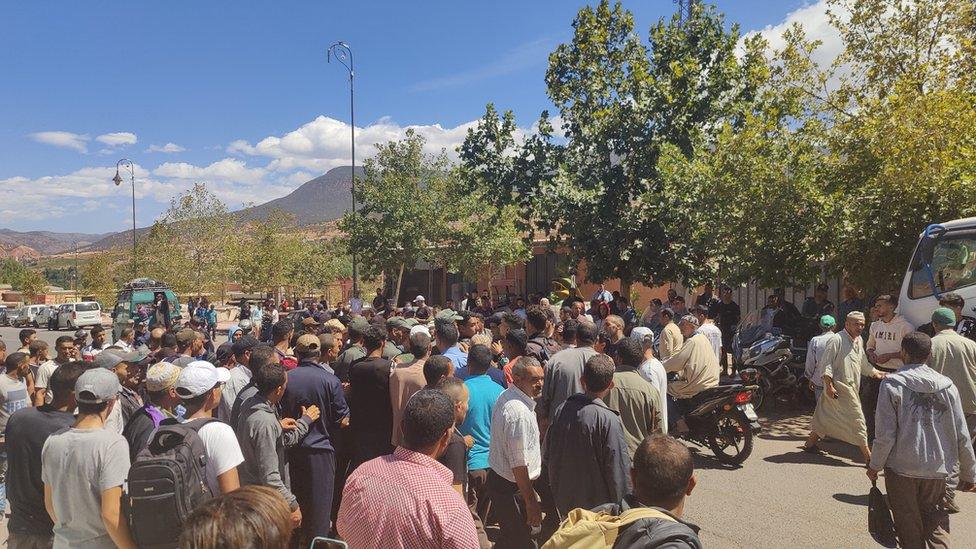
Angry crowds awaiting aid surrounded a local reporter in Asni
Since the earthquake he has been living on the side of the village's main road with his four children.
His house is still standing, but all of the walls are badly cracked and are too scared to stay there.
They have managed to return and take some blankets, which are now all they have to sleep on.
As a truck drove past the crowd some people tried to flag it down, desperately hoping it carried supplies. But it just headed on, followed by jeers.
The reporter at the centre of the crowd was escorted away by police, still followed by people desperate to vent their anger.
Some people say they have received tents from authorities, but there are nowhere near enough for all the people in need.
Nearby is Mbarka, another person living in a tent. She led us through side streets to her home that she can no longer live in.
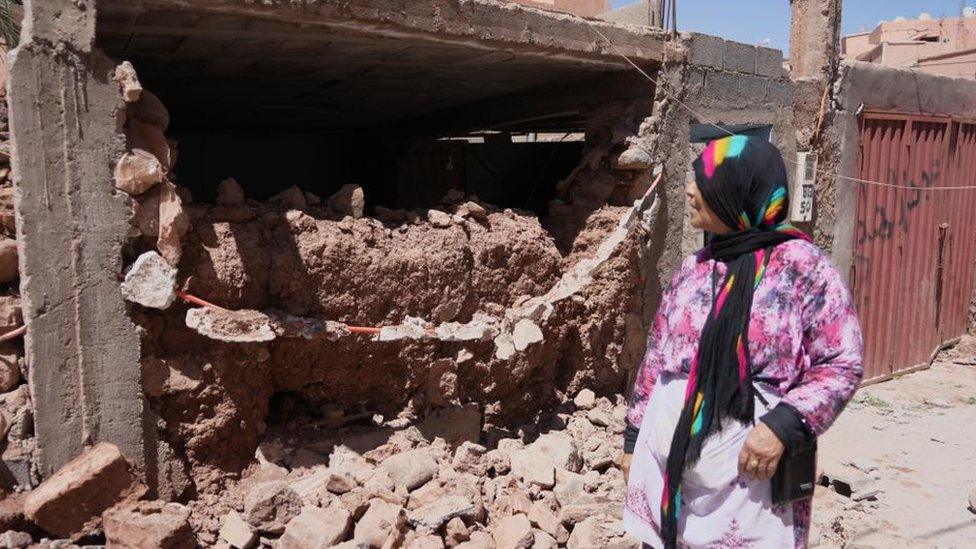
Mbarka's home was destroyed in the earthquake
"I have no means to rebuild the house," Mbarka said. "At the moment, it's just local people who are helping us."
She lived with her two daughters, son-in-law and three grandchildren.
As their house began to shake when the earthquake hit, they sprinted outside and were almost hit by a much larger home that started to slide down a hill towards them.
"We think the government will help," her son-in-law Abdelhadi said, "but there are 120 villages in the area."
With so many people needing help, a huge number of people will have to wait longer for assistance.
Related topics
- Published10 September 2023
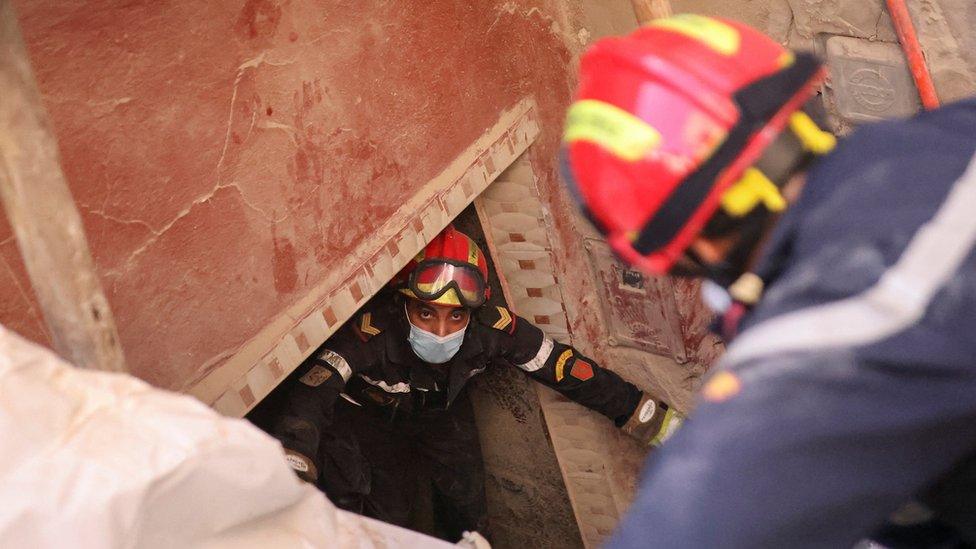
- Published10 September 2023
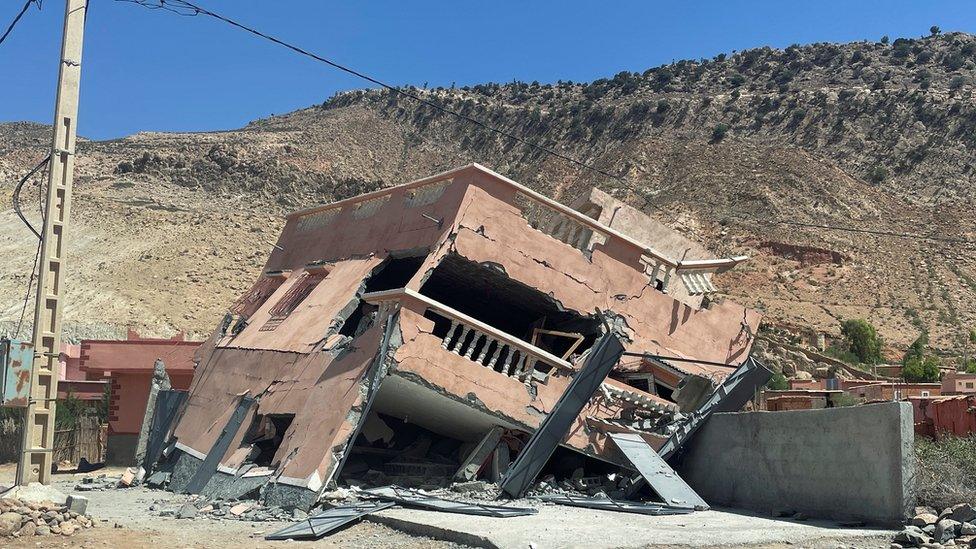
- Published10 September 2023
